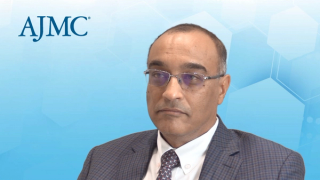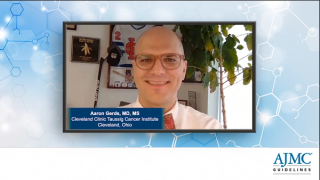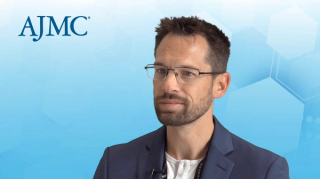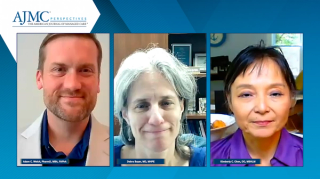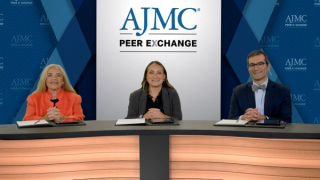
Clinical
Latest News

Latest Videos

CME Content
More News

The EASIX scoring system should not be used to predict outcomes following allogeneic stem cell transplantation (alloSCT) in patients with myelofibrosis.

This article examines the effect of a transplant case management program on clinical outcomes following transplant surgery.

Results for the STELLAR trial, presented at the 72nd American College of Cardiology (ACC) Scientific Session Together With the World Congress of Cardiology, hit nearly every mark: patients taking sotatercept improved their performance on a 6-minute walk test by 40.8 meters, which was the primary end point, and achieved 8 of 9 secondary end points.

Drs Michos and Baum provide payer considerations regarding HoFH treatment pathways.

Considerations for authorization documentation in HoFH treatment are discussed.

Pegcetacoplan was approved by the FDA to treat geographic atrophy (GA), providing a treatment option for patients who previously had none, explained Eleonora Lad, MD, PhD, associate professor of ophthalmology, Duke University.

The researchers used Paraphase on more than 400 samples of spinal muscular atrophy (SMA) comprising 5 ethnicities.

The risk of death among people with primary myelofibrosis (PMF) dropped by 53% after ruxolitinib’s introduction, the study found, although the data also suggested only 8.5% of patients were prescribed the drug.

Results from the CLEAR Outcomes trial were presented today at the 72nd American College of Cardiology (ACC) Scientific Session Together With the World Congress of Cardiology. Plans for a broader label are in the works.

Dr Haumschild leads a discussion highlighting goals of therapy and social determinants of health affecting MDR HIV diagnosis and treatment.

Veeral Sheth, MD, MBA, FACS discusses re-treatment in patients with wet AMD who have previously failed an anti-VEGF therapy.

A panel of experts explore burdens impacting patients diagnosed with MDR HIV.

Dr Coney expands on the role and impact of approved label dosing of faricimab.

Manmeet Ahluwalia, MD, MBA, Miami Cancer Institute, discussed efforts being taken by his organization’s Center for Equity in Cancer Care & Research to address disparities in clinical trial enrollment of minority patients in the United States.

The 72nd American College of Cardiology Scientific Session Together With the World Congress of Cardiology (ACC.23/WCC), runs from Saturday to Monday in New Orleans, Louisiana.

Starting immunotherapy prior to surgical resection led to better outcomes vs standard, adjuvant-only immunotherapy in a phase 2 trial of patients with advanced melanoma.
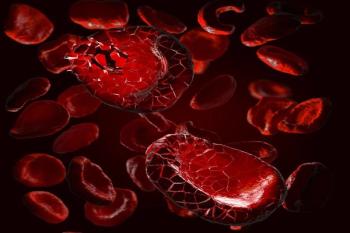
Idecabtagene vicleucel (ide-cel) reduced the risk of disease progression or death by 51% in patients with triple-class–exposed relapsed or refractory multiple myeloma (R/R MM).
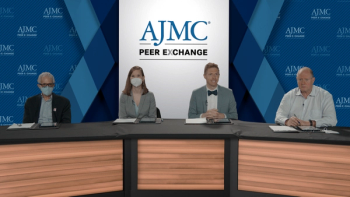
The panel of experts provide their closing thoughts on the burden of disease in leukemia and lymphoma and the Bruton tyrosine kinase inhibitor landscape.

Callie Coombs, MD, and Roy Beveridge, MD, discuss the education needed for payers and physicians surrounding the use of the Bruton tyrosine kinase inhibitors.

Just 26 cases have been reported in which myasthenia gravis (MG) symptoms appeared following vaccination.
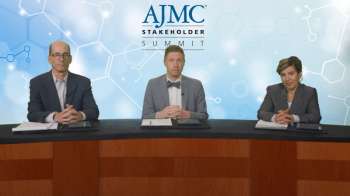
A panel of experts provide their final thoughts on treating psoriasis across all skin phototypes.

A panel of experts provide their final thoughts on treating psoriasis across all skin phototypes.

Maria Lopes, MD, MS, and Amy McMichael, MD, discuss how payers can incentivize patients’ use of digital health tools to monitor the success or failure of treatment.

Drs Baum and Michos share insights on current barriers to access of care.
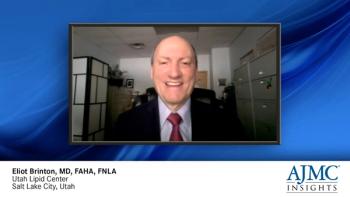
Evinacumab is highlighted as a new therapy for treating patients with homozygous FH.



